- + Add property for rent
- Sign up or Log in
-
English- en
-
GBP - £
- Buy
- Rent
- Rawai Property For Rent
- Rawai Market Overview
- See Newest Rentals
- List your Rental
- Sell
- Projects
- Advice


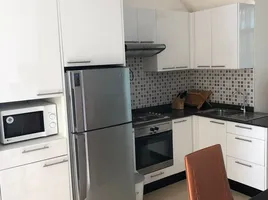
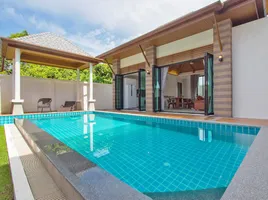
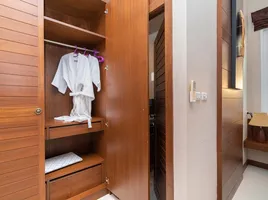
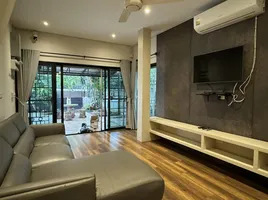
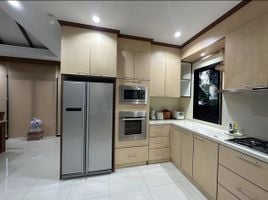
Find the latest rental rates on the Rawai property market

Rawai, located at the southern end of Phuket, Thailand, is a popular area for both expats and locals looking for a peaceful yet vibrant living environment. With a range of housing developments offering different amenities and types of residences, it can be a challenge to choose the one that fits your needs the best. Here are the top 5 housing developments for rent in Rawai that you should consider for your next move.
Note: The information provided is for general informational purposes and may not represent the most up-to-date or specific details. Always conduct your own research and consult with real estate professionals before making any decisions.
1. Rawai VIP Villas: Known for its luxurious atmosphere, Rawai VIP Villas is a high-end gated community featuring an array of pool villas. These villas come furnished with modern amenities, including private swimming pools, spacious living areas, and top-of-the-line kitchen appliances. The development also offers 24-hour security, a fitness center, and a dedicated management team to take care of your needs. This option is excellent for those looking for an opulent living experience close to the Rawai and Nai Harn beaches.
2. The Title Residencies: Situated along Rawai Beach, The Title Residencies offer a blend of condominiums and villas that capitalize on the stunning sea views. This development is perfect for those who love being close to the ocean and want modern conveniences at their fingertips. The complex includes multiple swimming pools, a fitness center, and on-site shopping and dining options.
3. Baan Bua Lakefront Villas: If an eco-friendly, serene living space is your priority, then Baan Bua Lakefront Villas might be the perfect fit for you. Set around a tranquil lake, this development offers a range of sustainable villas equipped with energy-efficient features like solar panels and rainwater harvesting systems. The community focuses on creating a natural, peaceful environment, making it perfect for those seeking tranquility without being far from the amenities of Rawai.
4. Rawai Seafront Homes: For those who dream of a home with direct beach access, Rawai Seafront Homes is a prime option. This exclusive development offers beachfront villas with private pools, landscaped gardens, and panoramic sea views. While the price point may be higher due to its prime location, the community offers unparalleled luxury and privacy.
5. Garden Villas Rawai: Garden Villas Rawai offers a more budget-friendly option without sacrificing quality. This development features a collection of well-designed villas set amid lush gardens. The community is family-friendly and offers shared amenities like a communal swimming pool and a small playground. It's an excellent choice for those who want a peaceful, community-oriented living experience.
Conclusion: Rawai has a housing development to fit nearly every lifestyle and budget. Whether you prioritize luxury, sustainability, community, or proximity to the beach, these top 5 housing developments for rent in Rawai offer something for everyone. Be sure to consult with real estate professionals and visit multiple properties to find the one that best meets your needs.
Renting a house in Rawai, a popular area in Phuket, Thailand, can be a rewarding experience, offering a blend of natural beauty and modern amenities. However, timing your rental can be crucial for a variety of reasons, from cost savings to availability and choice. Here are some factors to consider when deciding on the right time to rent a house in Rawai.
1. Tourist Season vs. Off-Season: Rawai, like the rest of Phuket, has a high and low season, which directly affects rental prices and availability. The high tourist season generally runs from November to April, when the weather is at its best. Rental prices can be significantly higher during these months due to increased demand. The off-season (May to October) might offer better rental deals, but keep in mind that this period coincides with the rainy season.
2. Property Turnover Rates: Property turnover rates are often higher at the end of the tourist season as short-term renters leave. This influx of available properties can give you more options to choose from. However, the best places may be snapped up quickly, so it's advisable to start your search early.
3. School Enrollment Periods: If you're moving with family and considering the academic calendar, it might be wise to time your move a few months before the new school year begins, typically in May for international schools in Thailand. This gives you time to settle in and make arrangements for school admissions.
4. Public Holidays and Festivals: Public holidays and local festivals can sometimes affect the ease with which you can move. Many services might be closed, and roads can be congested. Try to avoid moving during major holidays like Songkran (Thai New Year) or Loi Krathong (the Lantern Festival).
5. Personal Considerations: Your own schedule and commitments will naturally play a significant role in determining when you can move. If you have the flexibility to choose, aim for a time when you can dedicate a few weeks to house-hunting, moving, and settling into your new home.
6. Economic Factors: While harder to predict, economic fluctuations can affect rental prices. For instance, during a recession, rental prices may drop, but availability could also be lower due to increased demand for rental properties as opposed to purchases. Keep an eye on local and global economic trends if possible.
7. Lease Agreements and Negotiations: Landlords in Rawai may be more willing to negotiate lease terms during slower periods. If you’re looking to secure a more extended lease or negotiate the monthly rent, timing your rental during a lull in demand could be beneficial.
Conclusion: While the "perfect time" to rent a house in Rawai will depend on a variety of personal and external factors, considering the aspects mentioned above can help you make a more informed decision. From weather conditions to your own personal schedule, each element can play a role in determining the right time for you to make your move.
Rawai, situated on the southern tip of Phuket, Thailand, has become increasingly popular as a residential area for both locals and expatriates. The locale combines the allure of natural beauty with modern amenities, offering an array of housing options for rent. If you're considering renting a house in Rawai, here's what you can generally expect in terms of features and amenities:
Note: Features can vary depending on the specific property and the price range. Always consult with real estate professionals and visit properties to get accurate, up-to-date information.
1. Variety of Architectural Styles: Houses for rent in Rawai come in various architectural styles, ranging from traditional Thai designs to modern and contemporary layouts. Whether you're looking for a quaint Thai bungalow or a luxurious villa, there’s likely something to match your aesthetic preferences.
2. Spacious Interiors: One of the advantages of renting a house as opposed to an apartment is the additional space. Many houses for rent in Rawai offer spacious living rooms, multiple bedrooms, and sometimes even extra rooms that can be used as home offices or gyms.
3. Modern Amenities: Expect modern amenities like air conditioning, high-speed internet, and state-of-the-art kitchen appliances. Higher-end properties might also offer smart home features, enabling you to control various home functions via your smartphone.
4. Outdoor Spaces: Many houses in Rawai come with charming outdoor spaces, including private gardens, terraces, and even swimming pools. These can be particularly appealing if you enjoy the tropical climate and outdoor living.
5. Secure Environment: Security features are often a strong point in many Rawai housing developments. From gated communities with 24/7 security patrols to houses equipped with security cameras and alarm systems, renters often have peace of mind regarding safety.
6. Community Amenities: If you opt for a house within a larger development or gated community, you may have access to shared amenities such as communal swimming pools, fitness centers, parks, and sometimes even shopping centers or convenience stores within the complex.
7. Proximity to Attractions and Amenities: Many houses for rent in Rawai are conveniently located near popular beaches, restaurants, shopping areas, and tourist attractions. Some are even within walking distance, allowing for an easier and more enjoyable lifestyle.
8. Flexible Lease Terms: While long-term rentals are common, some landlords offer more flexible lease terms. This flexibility can be especially advantageous for expatriates or those not yet ready to commit to a long-term stay.
9. Pets and Family-Friendly Options: Some houses for rent in Rawai are particularly family-friendly, offering features like playgrounds and safe, enclosed yards. Additionally, certain properties may also be pet-friendly, although this is subject to the landlord's discretion.
Conclusion: Renting a house in Rawai offers a plethora of features that cater to various lifestyles and preferences. Whether you're looking for a tranquil getaway, a family-friendly environment, or a modern and luxurious living space, Rawai's rental market likely has something to offer that meets your needs. Conduct thorough research and engage with local real estate professionals to find the property that best suits you.
Breaking a house rental contract is a significant decision that can have both legal and financial repercussions. Whether you're facing unforeseen circumstances or simply want to relocate, it's crucial to approach the situation carefully. Here's what you should consider before taking this step:
1. Review Lease Terms: Start by thoroughly reading your rental agreement. Look for clauses related to early termination, including any penalties or conditions under which breaking the lease is permitted. This will give you a clearer understanding of your legal standing and potential obligations.
2. Legal Consequences: Depending on the jurisdiction and the terms of your contract, breaking a lease might expose you to legal action from your landlord. This could include a civil lawsuit or a negative entry on your credit report, which can make future rentals or loans more challenging to obtain.
3. Financial Costs: Most rental agreements include clauses that require the tenant to pay a fee for early termination. This can range from forfeiting your deposit to being responsible for all the remaining months of rent. Calculate the financial impact carefully and consider whether you can afford it.
4. Communication with Landlord: Before taking any drastic steps, communicate openly with your landlord. Sometimes, they may be understanding about unforeseen circumstances like job loss or health issues and may offer a more lenient termination condition or even agree to a mutual termination of the lease.
5. Subletting or Assigning the Lease: Check your lease to see if it allows for subletting the property or assigning the lease to another tenant. This could be a way to move out without officially breaking the lease, although you'll likely remain responsible for the property and any damages if you sublet.
6. Market Conditions: If the rental market is strong, your landlord may be more inclined to let you break the lease without excessive penalties, as they can easily find another tenant. However, if the market is slow, they may hold you responsible for all due amounts.
7. Documentation and Records: If you do proceed with breaking the lease, make sure to document all communications with your landlord. This includes emails, texts, and any forms or documents you fill out. This paper trail could be crucial in case of legal proceedings.
8. Property Condition: Remember that, apart from any penalties for breaking the lease, you're still responsible for the condition of the property. Any damage or needed repairs could result in additional fees, so ensure the property is in good condition before you leave.
9. Notice Period: Even if you intend to break the lease, you may still be required to give a notice period, usually 30 to 60 days. Failure to do so could result in additional penalties.
10. Impact on References: Breaking a lease could affect your rental history and your ability to rent in the future. Future landlords may be hesitant to rent to someone with a history of broken contracts.
Conclusion: Breaking a house rental contract is a decision that shouldn't be taken lightly. It's crucial to understand your legal obligations, the financial implications, and the potential long-term impacts on your credit and rental history. Always consult with a legal advisor and communicate openly with your landlord to explore all available options.